What’s the key to dealing with loneliness during the pandemic?
How do you cope on your own and stop feeling lonely all the time?
But, feeling lonely isn’t a new feeling for anyone. There are times when we all feel alone. The problem is that not all of us are comfortable with being alone.
Some choose to mask their loneliness with poor coping skills such as engaging in inappropriate relationships or substance abuse. Alcohol abuse is often the result of loneliness and a lack of coping. The problem with masking your loneliness with poor choices is that those choices usually result in a bigger problem.
Substance abuse, unhealthy relationships, and alcohol abuse can lead to addictions, physical and emotional health issues, and a label that is hard to shake. Things like applying for jobs or life insurance for alcoholics are never simple again.
As the world is on lockdown right now due to the pandemic, loneliness has been magnified in the lives of many people who are stuck at home away from friends and family. Some are isolated in hospitals, while others are stuck in foreign countries, and all are simply wondering when this will end.
While you’re inside during this pandemic, and your normal coping strategies might be unavailable to you, be sure to develop healthy ways of dealing with your loneliness.
So is the pandemic the cause of your loneliness, or could there be something much deeper going on here? Consider the following…
THIS POST MAY CONTAIN AFFILIATE LINKS.
IF YOU MAKE A PURCHASE FROM THESE LINKS, I MAY EARN A SMALL COMMISSION.
CLICK HERE FOR MY FULL DISCLAIMER STATEMENT.
Ask Yourself, “Why am I lonely?”
It is difficult to pinpoint the main cause of loneliness because it is subjective. There could be mental health reasons, developmental reasons, physical health reasons, or it could simply be by choice.
You may feel lonely because you are physically alone or are living in a state of fear about something that you are experiencing. Some people may even feel lonely in a crowd or when surrounded by family and friends. In those situations, loneliness may be the result of a deeper issue.
Many factors determine why someone is feeling like they are the only person in a stadium. Regardless of the why, feeling lonely often centers around the internal dialogue that we tell ourselves in the midst of uncertainty.
So, what’s your internal dialogue about loneliness? What are your limiting beliefs about why you’re alone?
👉🏽 RELATED POST: How to Be Yourself Around Others
Do You Have Social Anxiety?
An example is being at a dinner party with a dozen of your friends and feeling like you are alone and no one understands you. The reality is that you were invited to a dinner party and are literally there with a dozen other people, but your negative internal dialogue wants you to believe that you are the odd one out who no one likes and that you would be better off standing in a corner somewhere.
Unfortunately, this type of disconnection can run deep and lead to social anxiety disorder.
If you are unable to connect with others in social settings, you may be feeling like you are the only person in a room full of people. Loneliness is greatly impacted by the depth and quality of relationships you have, not the number of friends.
5 Truths About Dealing with Loneliness
#1. Remember Physical Distancing isn’t Social Distancing
Right now people may be alone out of necessity. Does it mean that they are alone in life? Physically yes, but emotionally probably not. Yet in their minds, they may think and feel like there is no one to turn to, no one to connect with, and no one to love.
The circumstance is dictating that being alone is a matter of safety, but it is not a matter of isolating you from the emotional connections, family ties, and bonds of friendship that are your normal reality. Yet again, that pesky internal dialogue is not letting you focus on the overall truth but has stalled on the physical truth of being alone, making you think everyone has forgotten you.
👉🏽 RELATED POST: How to Make New Friends
Stay connected. Talk to a friend or family member. Make good use of social media, Facetime, or Zoom. Have a standing dinner date every Wednesday on Zoom. Set a menu, fix it at your own location, then call and eat together at a virtual dinner party.
The goal is to stay sane while social distancing. There are ways to stay in touch if you’re just willing to use technology.
#2. Embrace Your True Self instead of Feeling Rejected
It is easy to get caught up in trying to be someone you aren’t for the sake of others. We try to be everything to everyone, and we end up losing sight of our true selves in the process.
Feeling like no one sees us for who we really are can feel lonesome. It can feel like a deep-rooted rejection because that isn’t who you want others to see. But it seems like they are blind to the real you.
The way to end your isolation is to embrace your true self around other people. Show the real you without masking yourself just to fit in or trying to fit the mold that others are trying to squeeze you into.
👉🏽 RELATED POST: Responding to Criticism Quotes
You are authentically and wonderfully made to be the person you are. No one has been granted the power to dictate who you are and who you become in this life. If you have people in your life making you feel unloved and insignificant, then it may be time to cut them out of the picture.
Feeling rejected is unpleasant. Sometimes we may feel rejected even when we aren’t. It can be as subjective as feeling lonely. Even if you are truly rejected by someone, it isn’t the end of the world. Not everyone is going to reject you, though some will. Sometimes people are put in our path as a lesson.
Find the lesson in the pain, and move on.
#3. Sometimes Loneliness is a Choice
There are times when we want to be alone. Being lonely in self-isolation is a different kind of loneliness. We can choose to be socially engaged with those around us, or we can choose to be alone in our own little bubble. Sometimes the latter is exactly what everyone needs.
When someone self-isolates for long periods of time and it becomes a lifestyle and not just a way to decompress at the moment, there may be other underlying issues such as depression or an inability to establish appropriate relationships.
If you’re concerned you may have mental health issues, it’s okay, just please connect a therapist or counselor. It’s as easy as searching “therapist near me.” Even in the time of self-isolating, most practices are offering online sessions.
Ask yourself, are you choosing to be alone? If you’re feeling lonely what better choices can you make? How can you connect instead of choosing to be all myself?
#4. Loneliness can Trigger Health Issues
Having social connections lays a strong foundation for our overall physical and mental health. Loneliness is sometimes so much deeper than the obvious, and it can lead to other issues.
It can lead to health issues such as obesity, heart disease, and poor habits. People who feel lonely are more likely to be smokers. They are often overweight. Loneliness can lead to Social Anxiety Disorder (SAD), eating disorders, and depression.
👉🏽 RELATED POST: Mental Health Tips to Feel Better
These health issues are especially a risk for the elderly who are socially isolated. If you have older relatives or grandparents, please make the time to reach out to them. Teach them how to use technology like Zoom and Facebook to see their friends and family.
There are so many online volunteer opportunities. You can also volunteer virtually to connect with seniors, and if you are a senior you can also give back too. Even if you’re at home, you can build connections and form relationships with those who need it most.
#5. Learn to Love and Accept Yourself
Sometimes being alone is just what the doctor ordered. When the world outside becomes overwhelming and too much to handle, taking some time alone can be calming in the midst of chaos.
This is especially needed for those who are at home in small quarters with a large family. If this is something you’re not used to, a lack of alone time can be challenging. Even on any given day, parents and especially moms need alone time.
Spend Time Alone Doing What You Enjoy
You must learn to be content with yourself in order to be okay with being alone. Just because you’re alone, doesn’t mean you have to be lonely. Loving yourself is the perfect ways for dealing with loneliness. You don’t have to just spend time alone either, you can:
- Treat yourself to a solo date night
- Enjoy pampering yourself at home
- Practice cheap and easy self-care ideas
- Take time for a mental health day
- Plan a staycation that feels like a vacation
- And so much more!
Basically, when you’re spending time alone, you’re doing what you enjoy and getting to know yourself better.
👉🏽 RELATED POST: How to Be Comfortable With Yourself
Get To Know Who You Really Are
Learn to love yourself for who you truly are. Discover your hopes, dreams, and passions. Never let anyone stifle those things in you. It may be a lonely ride at times down your path in life, but use the time wisely to really get to know yourself.
So, I know you’re wondering, “how do you get to know yourself?” Here are a few ideas:
- Start a daily journal
- Take a personality test
- Answer self-reflection questions
- Try a new hobby or two
- Figure out your superpower
- Write a Personal Mission statement
- Go on a trip or travel solo (when this is over of course!)
Then take it a step further and learn to like who you are! You’re amazing, learn to focus on what you simply love about yourself. Be more thankful for your life and all that you love about it.
Deal with Loneliness While Spending Time Alone
As a mental health professional, it is my absolute duty to encourage anyone who is feeling lonely, rejected, or forgotten to seek help from family, friends, or healthcare professional.
Remember help is just a phone call or quick online search away.
We are all in this isolation together right now, and despite your physical location, you aren’t truly alone.
Remember, even though you might feel alone, we are all in this together.
Feeling lonely and isolated while staying at home? Want to cope with feeling so alone? Click here for the key to dealing with loneliness during the pandemic. #StayAtHome #StuckInside #MentalHealth #Lonely
How are you dealing with loneliness during the pandemic?

More About Guest Contributor
Robyn Flint writes and researches for the life insurance comparison and education site, EffortlessInsurance.com. She has an MS in Clinical Mental Health Counseling and has worked with children and families through outpatient counseling, therapeutic day treatment, and therapeutic foster care. Robyn is a freelance writer, published author, and business owner.
Last Updated on July 23, 2024
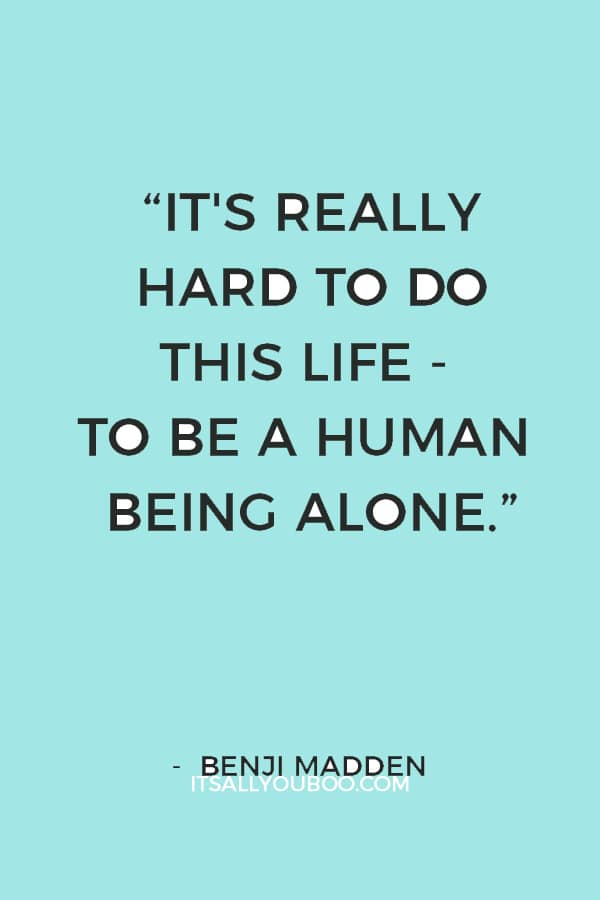
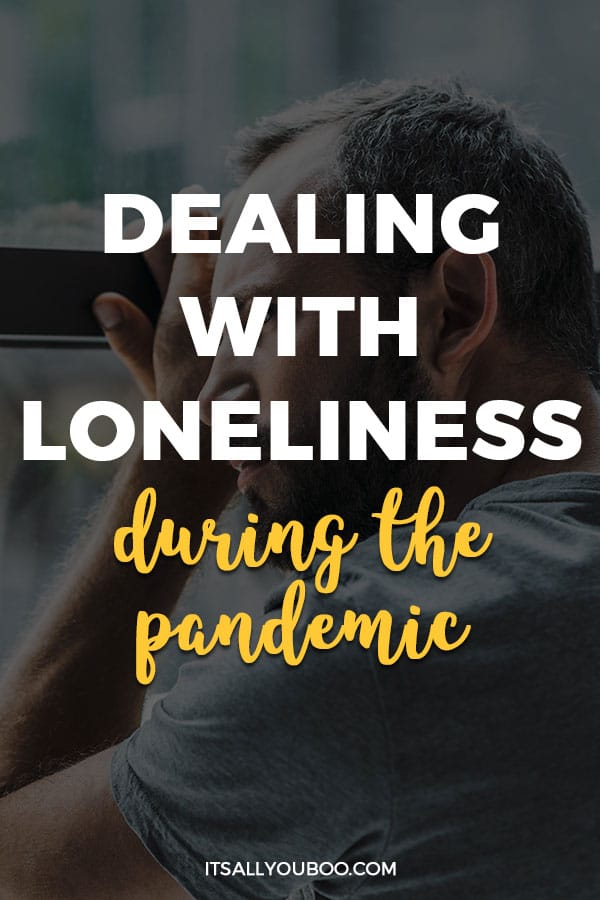
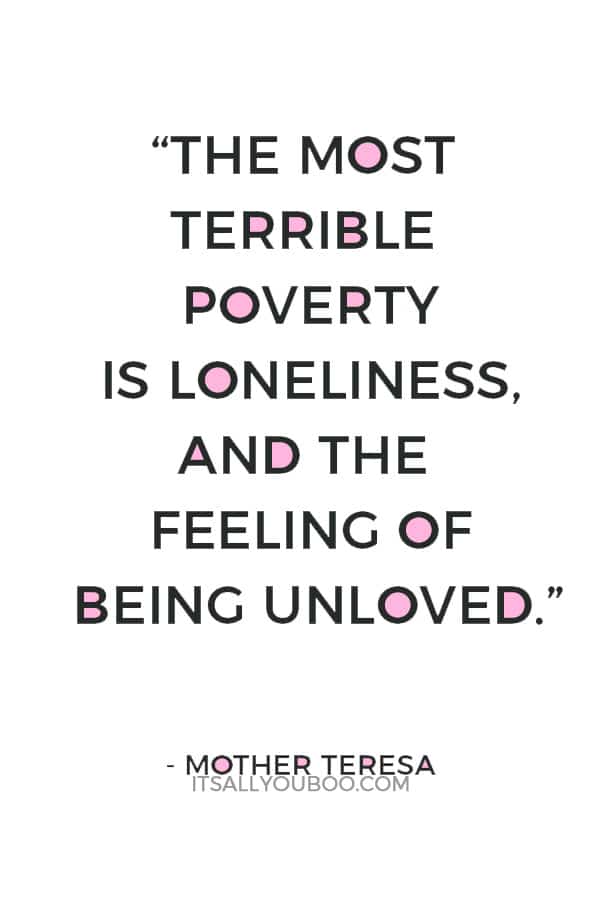
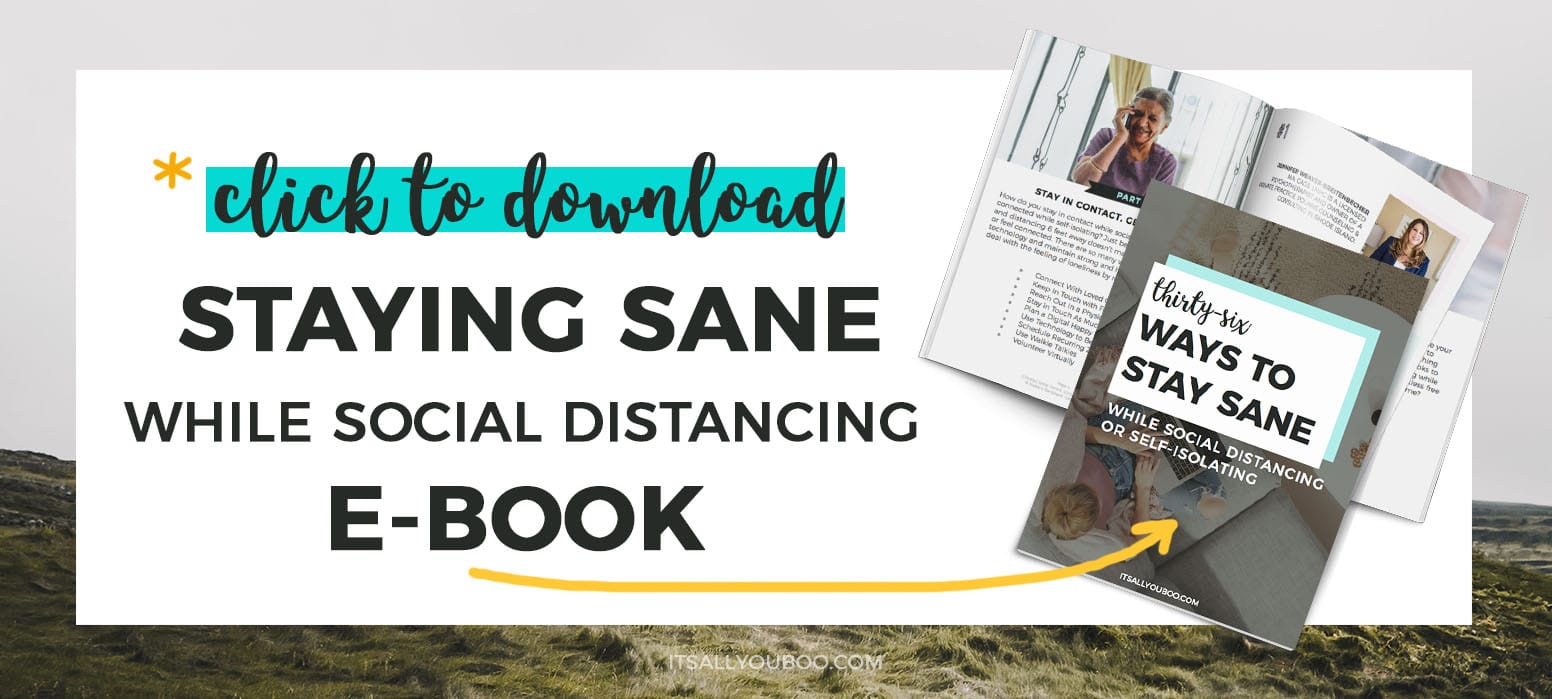



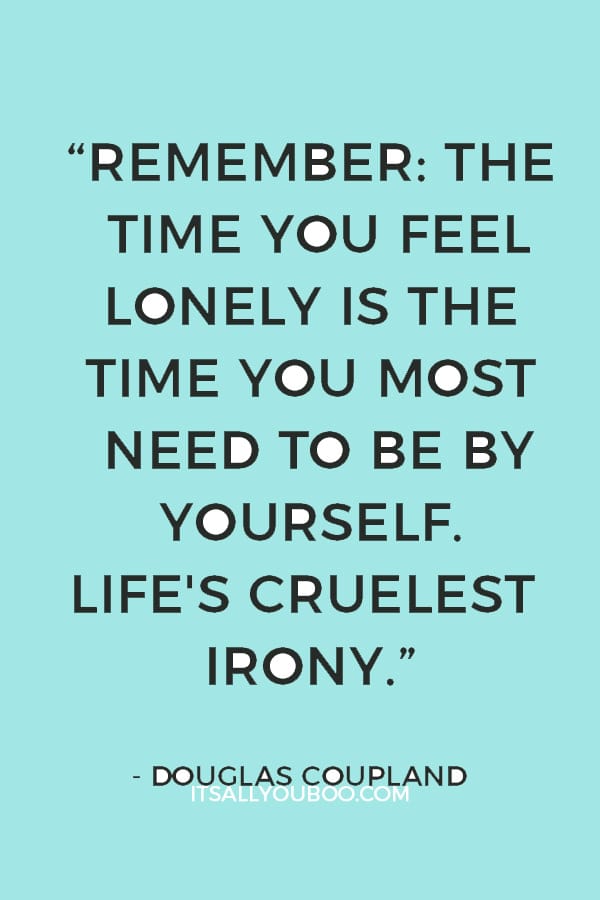
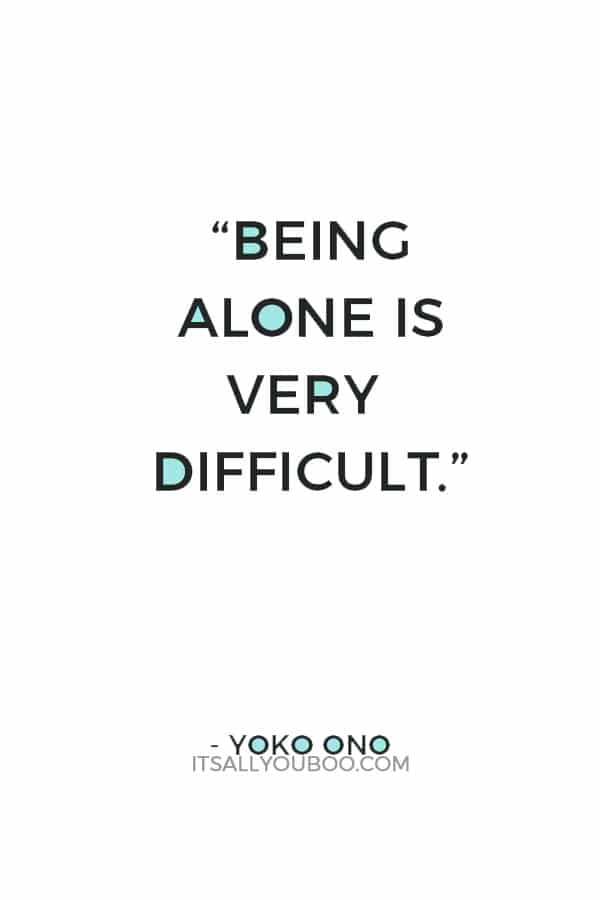
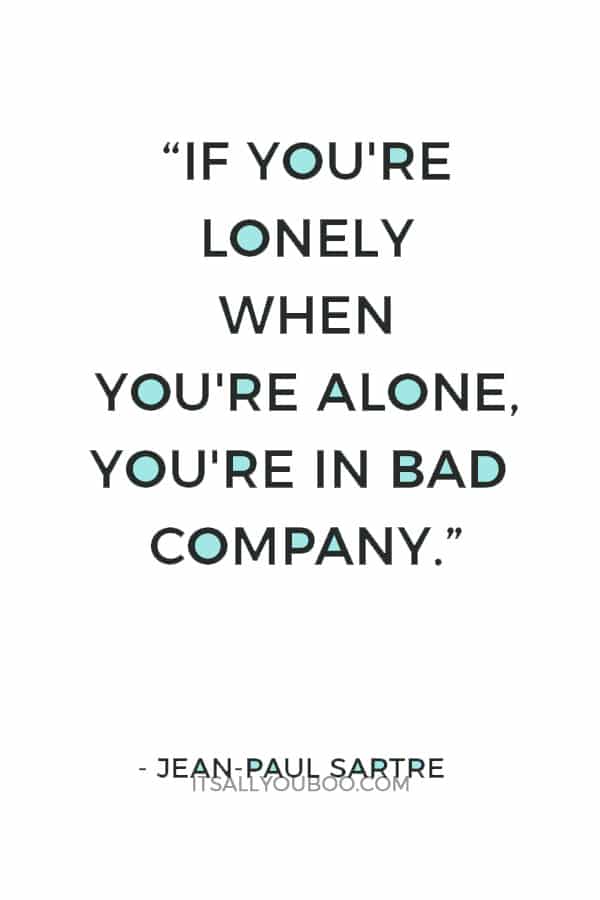



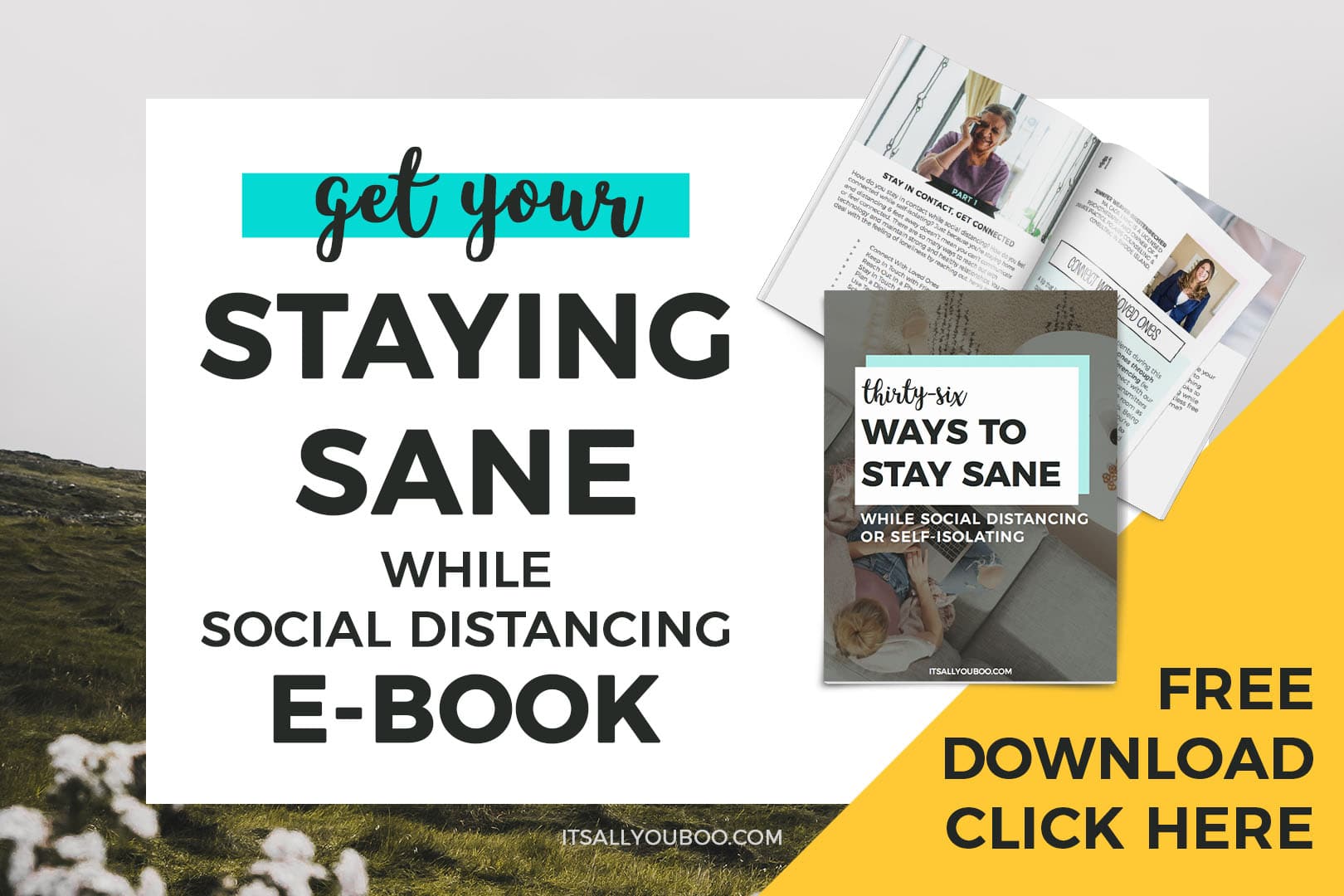


Nancy Andres says
Wow. What an extensive post with so many good reasons why people are lonely and tips to get out of it. Will pin this post. Visiting from Boss Blog Collective. Thanks for sharing and be well and safe.
Nadalie Bardo says
Thanks so much Nancy! Robyn did such a fanastic job helping us all deal with the feelings of loneliness during these times.
Bella says
This is such a great post, getting lonely is for sure happening during this time. I have been trying to stay busy and keep in contact with friends and family.
Nadalie Bardo says
Hey Bella,
I feel it too and I am such a person who LOVES me time. I’m like okay, let’s have some seeing different people time.
Tisha says
The mental health crisis has definitely gone up during this pandemic. These are all such great tips in working through the loneliness. Video calls are a great way to stay connected to friends and family.
Surabhi says
A serious issue addressed here. Loved the way you have provided alternate solutions
Nadalie Bardo says
Thanks Tisha, yes for sure those Zoom and Facetime calls are such a great way of dealing with loneliness.
Lisa Favre says
I had no idea that loneliness could lead to so many health issues. It makes me so sad to read that and I hope that any of my friends who are feeling lonely know that they could reach out to me.
Nadalie Bardo says
Hey Lisa,
Right? It’s almost shocking. But I feel as if anything negative, from fear to loneliness leads to health issues. We’ve got to stay connected!
Louise says
I thought I’d get lonely during the pandemic, but so far it’s been OK. I really feel for those who aren’t so lucky though. I can’t imagine it’s been easy for a lot of people :'(
Louise x
Nadalie Bardo says
Hey Louise,
I’m so happy to hear you’re feeling okay during this crisis. I feel you. I feel so blessed to be making it through okay. We’ve got to reach out to those around us who aren’t doing so well and maybe feeling a bit lonely and isolated.
Sharon says
This is such a valuable resource for this uncertain time. I will be sure to share this.
Nadalie Bardo says
Thanks for sharing, Sharon! Much appreciated.
Cristina Petrini says
Especially if you are single it must have been terrible, worse than anyone else. So here is a vital blog post to share.
Nadalie Bardo says
Hey Cristina,
That’s so true. Single people who live alone during the pandemic, must be feeling it so much more. We’ve got to find ways to reach out.
Carletta Shannon says
This is a fantastic post. So many valuable insights. Thank you for sharing.
Nadalie Bardo says
So glad you enjoyed it, Carletta!
rosemary | a hint of rosemary says
Excellent article addressing the issues so many face today. Even for those who normally don’t experience the feeling of loneliness, being totally by yourself during lockdown must be awful. Thank goodness we have ways to be socially engaged while staying at home!
Nadalie Bardo says
Hey Rosemary,
100% agree with you. Robyn has offered us such an insightful way for dealing with loneliness during the pandemic. As you say, it can be so hard for those who aren’t used to be alone. I’m so thankful for the internet in these times.